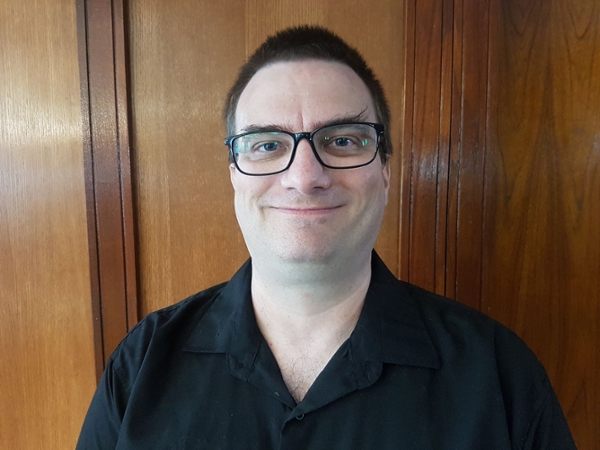The Graduate Student Research Series at Athabasca University aims to foster connections between students and faculty in that area as well as enable the opportunity for the students to engage in beneficial research discussions.
Jason Bernard is currently a Ph.D student at the University of Saskatchewan. Previously, he completed a M.Sc at Athabasca University in 2016 and a B.Sc from Bishop's University in 1995. His main research focus is on tools for modelling using artificial intelligence algorithms. Jason has been on the program committee of the European Conference on Technology Enhanced Learning since 2014, and has been a reviewer for Computers & Education, Royal Society Open Science, Bulletin of the IEEE Technical Committee on Learning Technology, and an upcoming special issue of Natural Computing. He was invited to do a presentation on his research at the Salk Institute for Biological Studies in December 2018.
Abstract:
Lindenmayer systems (L-systems) are a formal grammar sys-tem consisting of an alphabet, axiom and re-writing rules. When the re-writing rules are applied to a string (ω), each symbol in ω is replaced in parallel by a successor, a string associated to the symbol. If done iteratively starting with the axiom, this creates a sequence of strings that may be interpreted as instructions for simulation software to model natural processes. L-systems have been particular successful at modeling plant growth. The grand scheme for the automatic inference of L-systems is to convert a sequence of imagery into a sequence of strings (ρ), and subsequently infer an L-system that produces rho. Inferring L-systems in this manner not only reduces the effort required to produces mod-els, but has the potential to reveal the scientific principles underlying a process. This research focuses on the inference of L-systems from ρ by developing a suite of tools called the Plant Model Inference Tools (PMIT). This presentations will discuss on PMIT-D*L which is used to infer deterministic L-systems. An evaluation of the tools has found that PMIT can infer deterministic L-systems with up to 108 successors. This is a considerable improvement from previous state-of-the-art approaches that were limited to 2 successors. Additionally, this limit is much larger than currently well-known L-systems that have about 30 successors. This means that PMIT may be useful at inferring L-systems that are currently unknown in different research domains.
If you're in the Athabasca area on May 9th, get your free tickets here.
